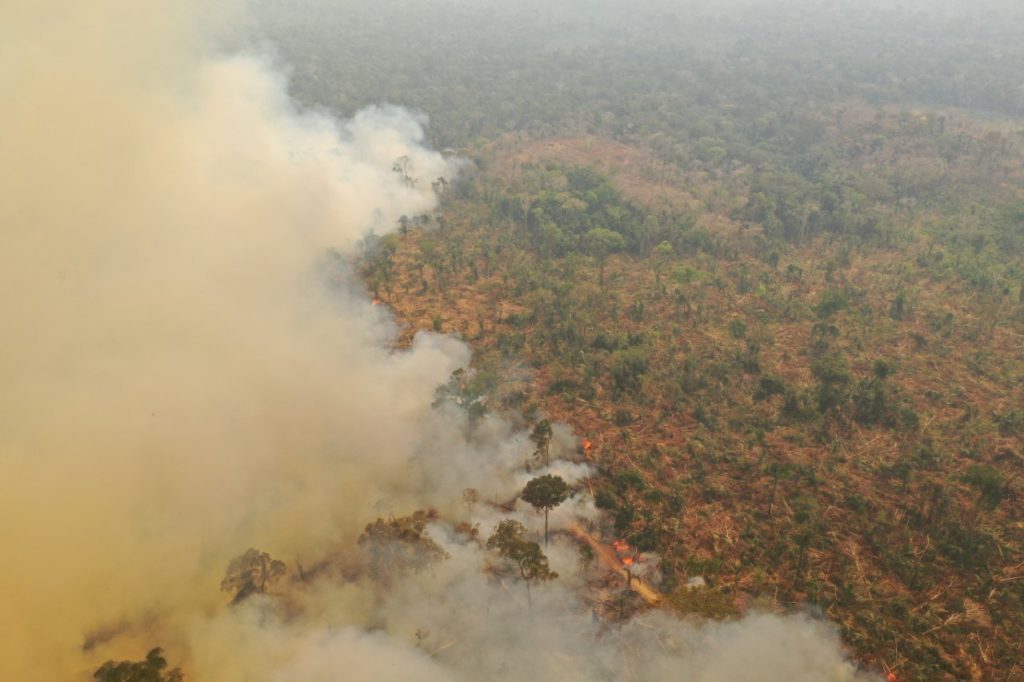The UN climate change conference can be assessed as a success or a failure depending on if the glass is seen as half full or half empty. When it comes to legislation against ecocide, progress was largely under the radar.
The movement for legislation gained momentum last Summer when a panel of legal experts convened by the Stop Ecocide Foundation drafted a legal definition as a possible amendment to the statutes of the International Criminal Court (ICC) to include ecocide alongside other international crimes such as war crimes, crimes against humanity and genocide. By such legislation, ecocide would also be included in domestic legislation.
In the European Parliament, MEPs supported the proposal and called on the EU and its member states to promote the recognition of ecocide as an international crime. Recognising ecocide as a crime under international law would protect the climate, the environment and nature and hold big polluters accountable irrespective of jurisdiction.
It would also offer protection of the human rights of local and indigenous communities that account to less than 5 % but inhabit 80 % of the world’s regions with the most biodiversity. “We are out of time,” said Juma Xipaia, an indigenous leader and activist belonging to the Xipaya people in Brazil, at a panel discussion during COP26 (9 November).
“What I see in my region is that ecocide is connected to genocide,” she said at the discussion under the heading “uniting behind law to protect people and planet”. “Forest destruction leads to community destruction. We are an inseparable part of the forest and nature.”
As international legislation against ecocide is a global and planetary issue, it requires a shift in mindset and it takes more time bring all countries on board, said Jojo Mehta, co-founder and executive director of Stop Ecocide International.
The European Commission is still dragging its feet. Vice-President Frans Timmermans told The Brussels Times in July that that he did not reject the idea out of hand but thought that time was not yet ripe. He listed a number of reasons for the Commission’s position such as public opinion, alternative measures and the divide in competencies between the EU and its member states.
Asked again during COP26 if the Commission had changed its position and if EU negotiators would raise the issue at the conference, a spokesperson replied that its position had not changed.
“The Commission is following with great interest the ongoing discussions on what could be a concept for ‘ecocide’, also as a means to draw focus on the damaging effects of biodiversity loss. More information and research is necessary before any conclusions can be drawn, also on which kind of concerted action is needed and at what level.”
“The pact represents some progress,” commented Jojo Mehta, referring to the Glasgow Climate Pact which was agreed upon by all 197 countries participating in the conference. “But as climate vulnerable nations left inadequately supported will be only too aware, we simply cannot rely on goodwill and ambition alone.”
“We are trying to play the same game better. We must play it differently, and that means changing the rules. Criminalising ecocide is a strategic, surgical way to do that, and while ecocide may not have appeared in the Glasgow pact, our conversations at COP26 revealed a rapidly growing interest both from states and the corporate sector.”
On the face of it, the text in the pact, while uncommitting, can be read as arguments for international legislation against ecocide.
The preamble in the pact includes wording on “the importance of ensuring the integrity of all ecosystems, including in forests, the ocean and the cryosphere, and the protection of biodiversity, recognized by some cultures as Mother Earth, and also noting the importance for some of the concept of ‘climate justice’, when taking action to address climate change.”
The pact recognizes “the interlinked global crises of climate change and biodiversity loss, and the critical role of protecting, conserving and restoring nature and ecosystems in delivering benefits for climate adaptation and mitigation, while ensuring social and environmental safeguards,
It also recognizes “the important role of indigenous peoples, local communities and civil society, including youth and children, in addressing and responding to climate change, and highlighting the urgent need for multilevel and cooperative action.”
M. Apelblat
The Brussels Times

